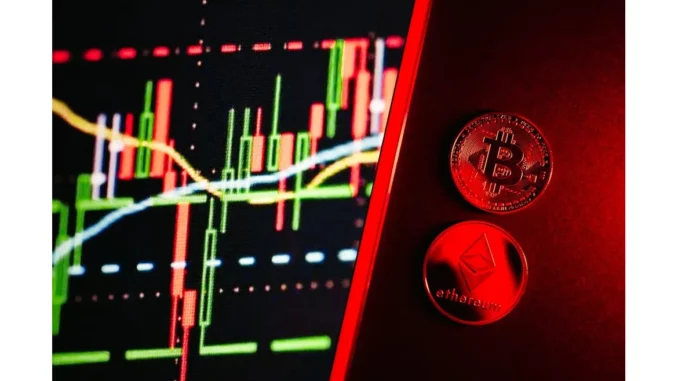
In a recent development that has reverberated through the digital asset community, the Treasury Department has issued a crucial warning regarding the increasing susceptibility of Non-Fungible Tokens (NFTs) to fraud and scams. As NFTs have risen in popularity as blockchain-based digital assets, they have concurrently opened new doors for criminal exploitation, underscoring the urgent need for extensive regulatory oversight and robust consumer protection measures. This highlights a broader narrative about the evolving challenges and risks within the digital currency sphere, necessitating immediate action to preserve market integrity and protect investors.
The Treasury’s report presents a stark overview of the NFT landscape, underscoring the significant vulnerability of these assets to theft, fraud, and scams. Over recent years, criminals have increasingly capitalized on the inherent weaknesses in NFT characteristics and the gaps in regulatory frameworks, leading to substantial financial losses. The report reveals that crypto frauds and scams have surged to an alarming $3.9 billion, marking a 53% increase year over year. This surge is driven by the allure of high returns on investments, which scammers exploit to ensnare victims in intricate schemes.
One particularly troubling trend identified in the Treasury’s findings is the emergence of “scam factories.” These operations involve trafficked individuals coerced into conducting fraudulent activities targeting foreign nationals. A prevalent tactic, known as “pig butchering,” involves scammers building trust with victims through fake identities and romance scams before steering them into fraudulent cryptocurrency investments. These schemes illuminate the lengths to which criminals will go to exploit the NFT market’s vulnerabilities.
The lack of robust internal controls within NFT companies has further exacerbated these risks, creating fertile ground for money laundering and obfuscating the illicit origins of funds. This has raised concerns about market integrity and underscored the necessity for stringent measures to combat illicit activities within the digital asset ecosystem. Notably, major players like GameStop have chosen to exit the NFT business, citing regulatory uncertainties as a significant challenge. This decision reflects the broader difficulties faced by companies navigating the NFT space amidst evolving regulatory landscapes.
Market sentiment towards NFTs has also shifted, evidenced by a 63% decline in NFT sales in 2023. Persistent concerns about cybersecurity vulnerabilities, copyright issues, and price volatility have contributed to this downturn. The FBI’s reports of a significant increase in complaints about cryptocurrency scams further underscore the growing prevalence of crypto-related crimes. These developments call for enhanced cybersecurity measures and clearer regulatory guidelines to protect the burgeoning digital currency market.
As more everyday consumers engage with NFTs, hoping to capitalize on the digital currency market’s potential, it becomes imperative for stakeholders to collaborate in addressing the vulnerabilities that make these assets attractive to criminals. Implementing stringent controls and reinforcing regulatory frameworks can help safeguard investors and consumers from falling victim to fraudulent schemes within the NFT space. The industry must prioritize building a secure environment that deters illicit activities and fosters trust.
The Treasury Department’s warning serves as a crucial reminder of the inherent risks associated with NFTs and the pressing need for comprehensive measures to mitigate the threat of fraudulent activities in the digital currency market. As technology continues to advance and new trends emerge, regulators and industry players must unite to ensure the integrity and security of the evolving financial landscape. By doing so, they can create a safer and more resilient digital asset ecosystem for all stakeholders.
The call to action is clear: enhanced regulatory oversight, robust consumer protection, and collaborative efforts are essential to mitigate the risks associated with NFTs. This includes establishing stringent internal controls within NFT companies to prevent money laundering and other illicit activities. Furthermore, regulatory bodies must work in tandem with industry players to develop and implement guidelines that promote transparency and accountability.
Educational initiatives also play a crucial role in this endeavor. By raising awareness about the potential risks and scams associated with NFTs, consumers can make more informed decisions and avoid falling prey to fraudulent schemes. This involves not only educating potential investors but also ensuring that companies operating in the NFT space are well-versed in compliance and best practices.
The Treasury Department’s report also highlights the importance of technological advancements in bolstering the security of NFTs. Leveraging cutting-edge technologies such as artificial intelligence and machine learning can help detect and prevent fraudulent activities before they escalate. By investing in innovative solutions, the industry can stay one step ahead of criminals and protect the integrity of the digital asset ecosystem.
Additionally, fostering international cooperation is vital in combating the global nature of NFT-related crimes. Criminals often operate across borders, making it essential for countries to collaborate in sharing information and coordinating efforts to dismantle scam networks. International partnerships can enhance the effectiveness of regulatory measures and ensure a unified approach to tackling NFT vulnerabilities.
The Treasury Department’s urgent call for action underscores the critical need to address the vulnerabilities and risks associated with NFTs. As the digital asset market continues to grow and evolve, stakeholders must work together to implement comprehensive measures that safeguard consumers, maintain market integrity, and prevent illicit activities. By prioritizing security, transparency, and collaboration, the industry can build a resilient and trustworthy digital asset ecosystem that benefits all participants.

Be the first to comment